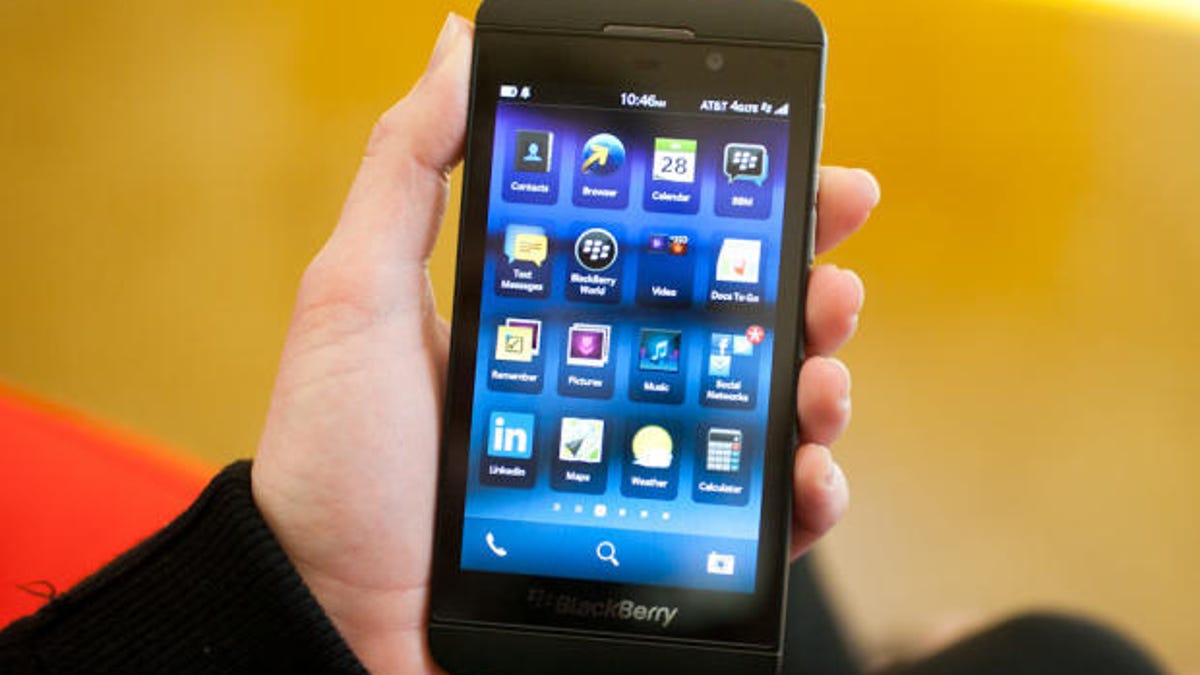Hope for BlackBerry? One analyst sees tailwinds ahead
Fiscal year 2015, which begins in March, looks to be a transitional year, but there's reason to see improvement by fiscal 2016, analyst says.

There's reason to feel a small measure of confidence in BlackBerry's ability to stabilize the business -- you just need to exercise some patience.
That's according to Wells Fargo analyst Maynard Um, who raised his estimate on BlackBerry's valuation range and slightly lifted his revenue estimate for fiscal 2015, which begins in March. He said that by fiscal 2016, the company could see higher cash flow from adjustments made to the business.
BlackBerry, under new CEO John Chen, is still trying to figure itself out after making some major shifts in the company. Chen has essentially wiped out the old guard in the management ranks, focused the company more on its enterprise customers, and struck deals with suppliers such as Foxconn to build cheaper phones. The moves come after the BlackBerry 10 operating system failed to capture the attention of consumers.
Most recently, Andrew Bocking, head of BlackBerry's BBM messenger business, said he would leave the company.
BlackBerry's downfall exemplifies the broader upheaval in the smartphone business, first brought on by Apple and its iPhone, but further fueled by the rise of Google's Android and the dominance of Samsung's Galaxy S franchise. Companies such as BlackBerry scrambled to reinvent themselves, but came up short and late.
Um, who describes fiscal 2015 as a "transition year," has his sights set on fiscal 2016. By then, he projects that the company will have reduced its need for working capital as it shifts away from the hardware business, as well as lowered its operating expense from the reduced need to market to consumers. Um noted that royalty payments that BlackBerry has had to make will end in November, saving the company an estimated $200 million.
The company also should have its new salesforce in place, designed to double down on business and government clients that value security in their mobile devices. Um added that the company still needs to clarify its business model and its plans for pricing services.
As a result of these potential "cash flow tailwinds," Um raised his valuation on the company from a previous range of $8 to $9 per share to $9.50 to $10.50 -- not a huge lift, but notable given the negative sentiment around the company. In addition, Um expects the company to generate revenue of $3.9 billion and a per-share loss of $1.18, a slight improvement over a previous estimate of revenue of $3.78 billion and a loss of $1.32 a share.
BlackBerry shares rose a fraction to $9.82 in premarket trading on Wednesday.

